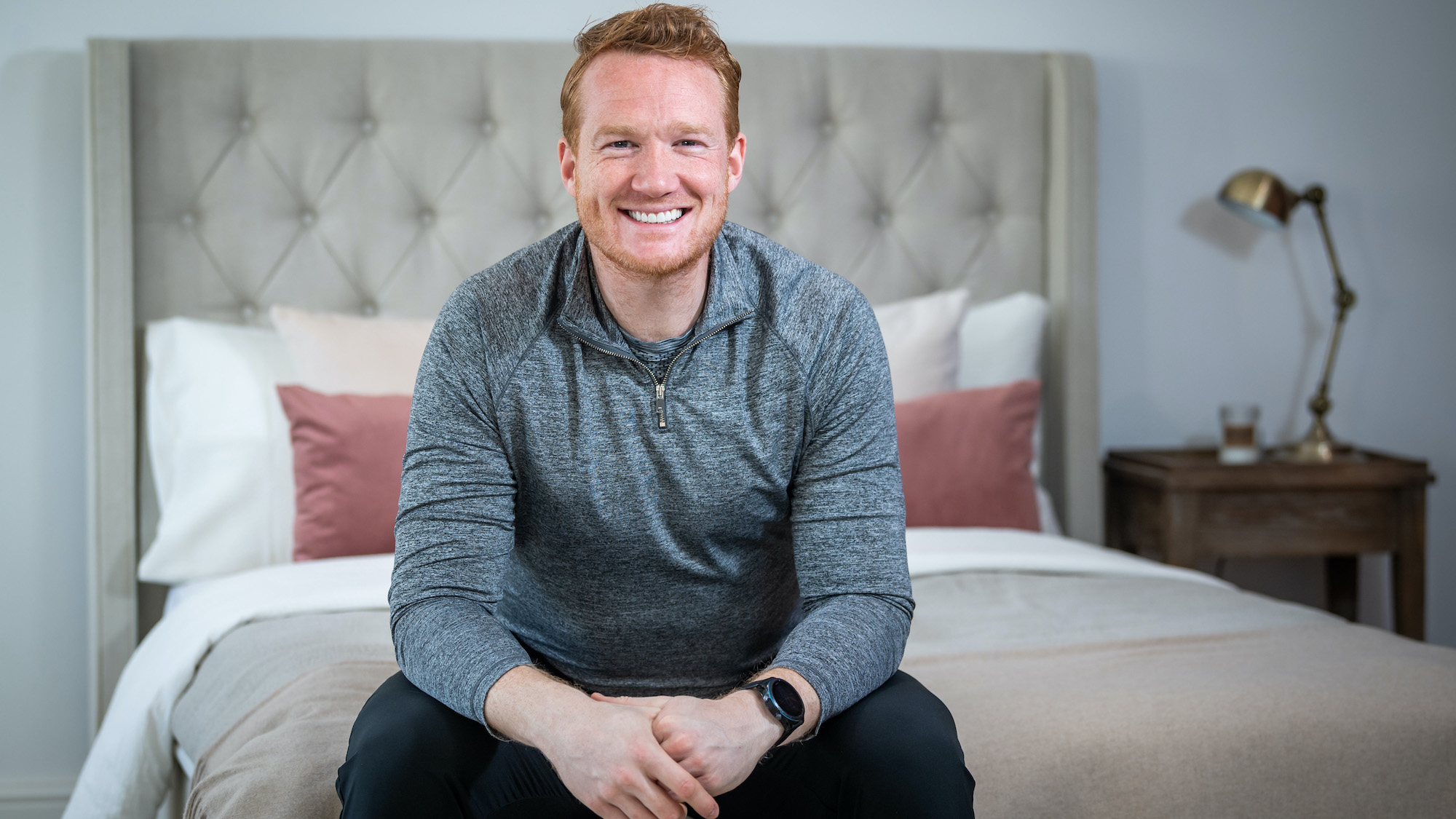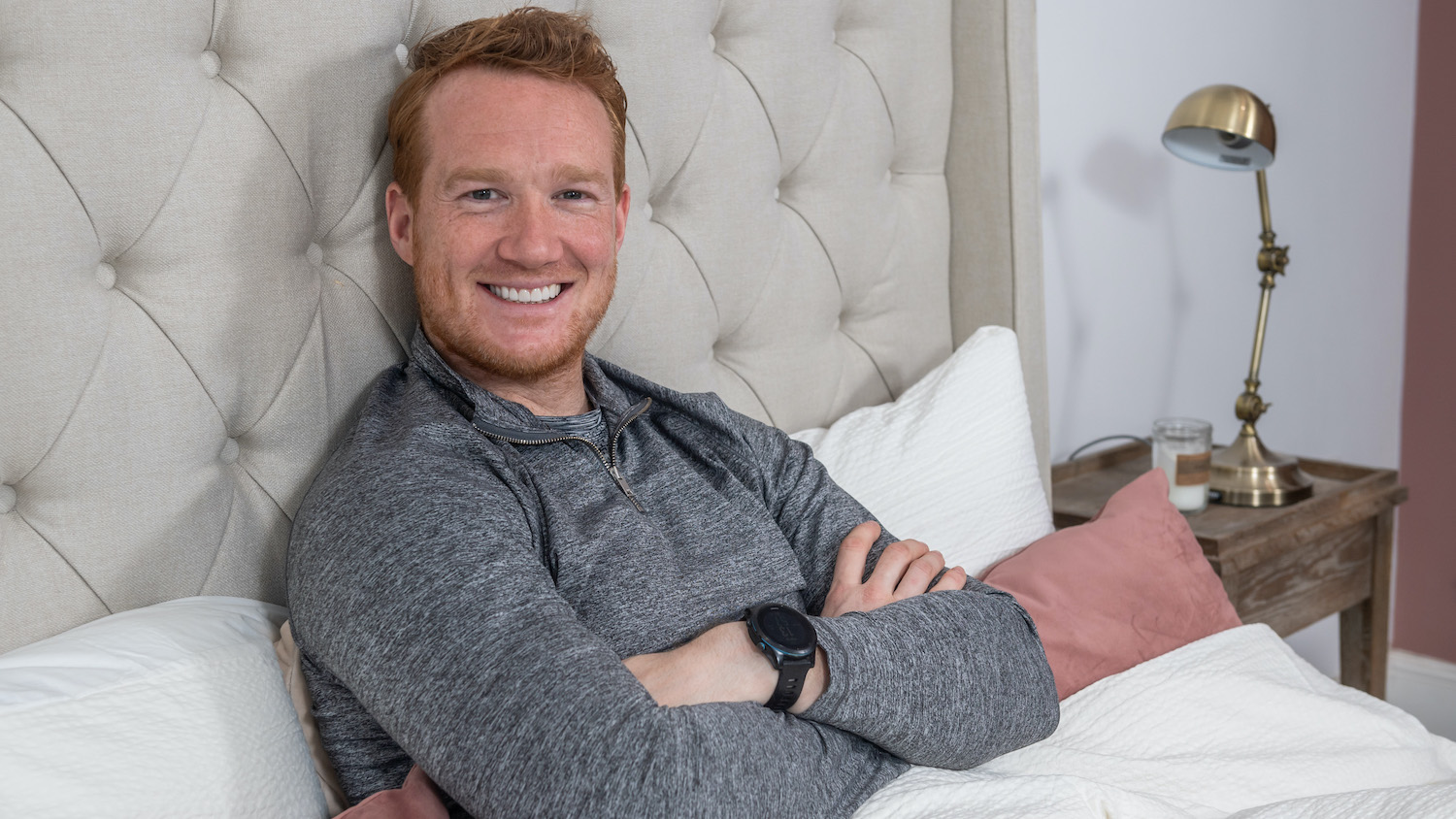Olympic athlete Greg Rutherford reveals his bedtime routine for better sleep
Gold medalist Greg Rutherford teams up with mattress retailer Dreams to highlight why sleep and bedtime routines matter

Olympic athlete Greg Rutherford MBE has shared his best sleep tips and bedtime routine in the hopes of helping others to snooze better. The Gold medalist has teamed up with bed retailer Dreams to share his expert insight and experience to coincide with new research into the sleep habits and bedtime routines of UK adults.
The survey, conducted by Dreams, found that Brits spend just 12 minutes on their sleep routine, as opposed to the expert-recommend 45 minutes to an hour, with over 55% admitting that they don’t get enough good quality shut-eye. For Rutherford, a renowned track and field athlete who recently transitioned to bobsleigh, lack of sleep is a big problem.
“As an athlete, sleep is up there with being one of the most important elements in influencing our performance, whether in training or just before a competition.
“Sleep is our superpower!” Rutherford continues. “Having a bedtime routine is an essential part of my evening - I call it my ‘reverse warm up’ and it follows a similar structure to my kids’ routines.”
Kelly Davis, Marketing Manager at Dreams, added: “It’s clear to see that our busy lifestyles have an adverse impact on our sleeping routine, even more so for parents with children. We want to inspire the nation and help everyone to get a good night’s sleep.”
Olympic athlete Greg Rutherford’s best sleep tips
Wondering what a pro athlete does to snooze better at night? Then you’re in luck as Rutherford has shared his top sleep tips, many of which he uses as part of his own bedtime routine. Here’s what he advises:
45 minutes no screen time: “I do this as it’s easy to get distracted by checking emails or texts and then your brain starts whirring before sleep.”
Sign up to get the BEST of Tom's Guide direct to your inbox.
Get instant access to breaking news, the hottest reviews, great deals and helpful tips.
A warm bath: “This helps me relax my body, especially if I’ve been working out and need to soothe my muscles.”

Listening to relaxing music: “If I know I might not be able to switch off easily, I try to listen to some relaxing music until I drift off.”
Reading a book: “This helps me unwind but I’ve got a stack next to my bed which I’m yet to finish!”
Using lavender pillow spray: “I use this on my kid’s pillows too because they like it and we can take it with us on trips -it reminds them of home.”
Organising my bedroom: “I like to get everything sorted a couple of hours before bed - so I’m not trying to find things and accidentally perking myself up in the process.”
How does that compare to the sleep routines of the 2,000 people surveyed by Dreams? The survey found that respondents spend just 12 minutes on their sleep routine each night, with the most common pre-bedtime activities involving brushing their teeth, getting into their pyjamas, and washing their face.
As we’ve been exploring recently on Tom’s Guide, breathing techniques, such as the military sleep method and the 4 7 8 sleep method, are much better ways to unwind and relax before bed. So if your bedtime routine is still leaving you feeling wired when hitting the hay, incorporating a session of breath work should make a big difference.
Also make sure you are sleeping on the best mattress for your body, and that you have a comfy pillow that works for your favourite sleeping position, as both can hugely impact your quality of sleep.
Top 15 things Brits do as part of their bedtime routine
The Dreams survey found that over a quarter of respondents followed the same routine each night, with 63% agreeing that bedtime rituals have a positive effect on their ability to fall asleep – and sleep well.
On the flipside, those not sleeping well commented on how poor sleep affects their ability to concentrate, and even leads to them craving sugary snacks. 55% of respondents admitted they don’t get enough quality sleep.
Of those surveyed, here are the Top 15 things Brits do before going to sleep:
- Brush my teeth
- Change into pyjamas
- Wash my face
- Take off my glasses
- Set an alarm
- Read a book
- Start my routine at the same time every night
- Take makeup off
- Prep my bedroom
- Floss
- Have a bath or shower
- Listen to music or a podcast
- Watch videos on my phone
- Write a list for the next day
- Do stretches
For your own bedtime routine to be effective, experts recommend beginning it at the same time every night. That way your brain recognises all of the cues that it’s time to start winding down for sleep. And the more you practice your routine, the more effective it will become and the better you will sleep.
Things to consider doing as part of your routine include having a bath or warm shower, reading a novel (but nothing too exciting or stimulating for your brain), doing some light stretches, and trying a deep breathing exercise. If worries keep you awake at night, read our feature on how to sleep with anxiety, which has tips from a leading psychologist.
For more Team GB and ParalympicsGB athlete’s top tips for a good night’s sleep, visit the Dreams website, which contains information on the retailer’s SleepMatch body-mapping bed service.
Grace is an experienced sleep writer and mattress reviewer who also contributes to our sister site TechRadar, among other Future plc brands. She's a big fan of organic sleep products and has recently invested in a wool mattress topper that she quite happily describes as "life-changing." (Hey, we're serious about our sleep products). When she isn't testing mattresses or writing about sleep, Grace enjoys reading and creative writing, and incorporates meditation and yoga into her wellness routine.

